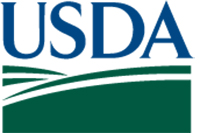The information below has been supplied by dairy marketers and other industry organizations. It has not been edited, verified or endorsed by Hoard's Dairyman.
The U.S. Department of Agriculture’s Risk Management Agency (RMA) today announced up to $3 million is available for cooperative agreements to educate underserved, small-scale and organic producers on risk management and climate-smart practices. RMA’s Risk Management Education Partnerships provide funding for organizations, such as nonprofits and land grant universities, to develop training and resources for producers about risk management options like crop insurance.
“This funding is integral to our outreach efforts in communities that historically have not had access to training about risk management options. Our Risk Management Education partnerships are part of USDA’s broader efforts to ensure equity and access to programs,” said RMA Administrator Marcia Bunger. “As a farmer, I know first-hand that agriculture is a risky business. We want to work with growers and livestock producers to provide them training and resources about risk management options and how to apply them to their farming businesses.”
In 2023, RMA helped provide the largest farm safety net in history, a record $207 billion in protection for American agriculture. At the same time, the agency continued to introduce new programs to better support a broader range of producers, including specialty crop, livestock, controlled environment and shellfish producers. Risk Management Education partnerships are critical to making sure the farm safety net and new programs are effectively delivered to agricultural producers who need them.
This $3 million Risk Management Education investment builds on the $13 million that RMA has already provided in partnerships since 2021. Previous recipients, which include universities, county cooperative extension offices and nonprofit organizations, developed education tools that assist and train producers on how to effectively manage long-term risks and challenges in agriculture production.
Interested organizations may apply for funding by submitting documentation required as part of the Notice of Funding Opportunity. A broad range of risk management training activities are eligible for funding consideration, including training on crop insurance options, record keeping, financial management, non-insurance-based risk management tools, natural disaster preparedness and securing local food systems through risk management.
Interested entities should apply through grants.gov by March 4.
Assistance with Cooperative Agreement and Grant Applications
RMA offers a service that assists entities with completing applications for USDA funding opportunities.
This service provides applicants assistance with:
- Formulating statements of work, performance work statements and statements of objectives.
- Completing cooperative agreement award and grant applications.
- Project management for those applicants receiving a cooperative agreement award or grant so that recipients meet all the milestones and reporting obligations, abide by proper funds management and burn-rate, and demonstrate successful execution, monitoring and controlling, and project closeout.
This service is available to underserved communities, ag-related non-profits, Tribal colleges and universities, Tribal higher education programs, 1890 Land Grant Universities, Historically Black Colleges and Universities, and Hispanic-Serving Agricultural Colleges and Universities.
Interested parties should email rma.risk-ed@usda.gov for details.
More Information
Crop insurance is sold and delivered solely through private crop insurance agents. A list of crop insurance agents is available at all USDA Service Centers and online at the RMA Agent Locator. Learn more about crop insurance and the modern farm safety net at rma.usda.gov or by contacting your RMA Regional Office.
USDA touches the lives of all Americans each day in so many positive ways. Under the Biden-Harris administration, USDA is transforming America’s food system with a greater focus on more resilient local and regional food production, fairer markets for all producers, ensuring access to safe, healthy and nutritious food in all communities, building new markets and streams of income for farmers and producers using climate smart food and forestry practices, making historic investments in infrastructure and clean energy capabilities in rural America, and committing to equity across the Department by removing systemic barriers and building a workforce more representative of America. To learn more, visit usda.gov.



